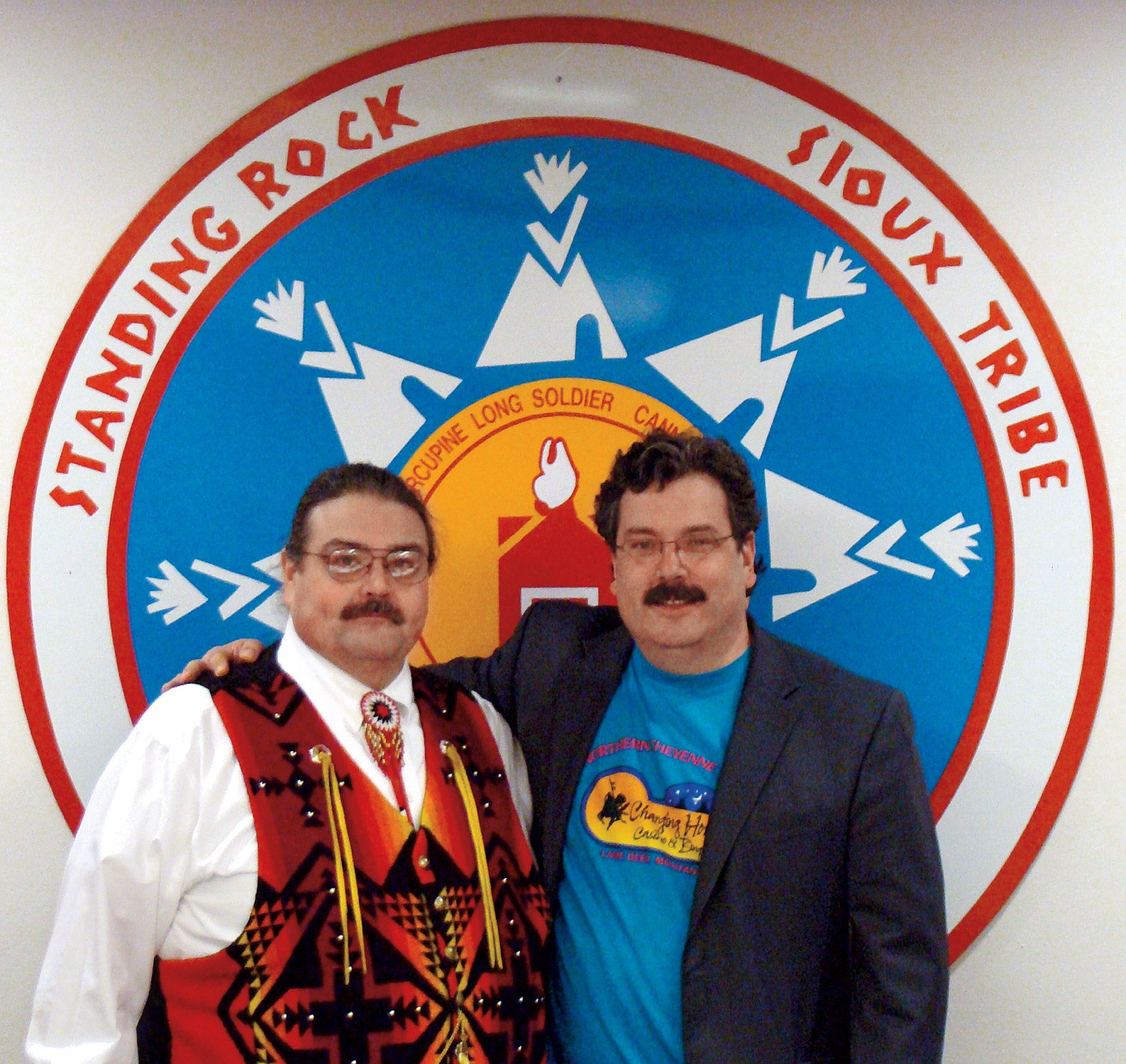Two brothers advocate for the sovereignty of their people
Last summer, in South Dakota, when Steve Emery ’89 was made chief of the Prairie Dwelling Lakota, he was given the name Naca Wamni Omni (Chief Whirlwind). The name was meant to reflect his power with words, and the honor was the culmination of a career spent advocating for the sovereignty of his people—a mission he has shared with his brother, Mark Van Norman ’86.
For Emery and Van Norman, returning to the reservation was always in their career plans. Emery recalled his grandfather saying: “Takoja (Grandson), there are many people on the reservation that need help. Before you return home, learn a skill that will let you provide assistance to your relatives.”
The brothers have never forgotten those words, nor the fact that eight of the 10 poorest counties in the U.S. are Indian reservations—five of them Sioux in South Dakota. Both brothers chose to pursue law degrees.
“The force of American law was used to help deprive my people of their language, culture and religion,” says Emery. “There ought to be some opportunity within the American legal system for those things to be protected for our young children whose parents want them to be brought up in the traditional ways.”
The brothers’ interest in American Indian legal issues began while Van Norman was in law school. With the help of a fellowship, he spent a summer with the Oglala Sioux Tribe in Pine Ridge, S.D., and his brother joined him. Emery began his studies at HLS just after Van Norman graduated. Upon Emery’s graduation, both brothers took jobs as tribal attorneys for the Cheyenne River Sioux Tribe in Eagle Butte, S.D.
For about six years, they fulfilled their grandfather’s vision of serving their tribe together—Van Norman as tribal attorney general and Emery as assistant attorney general. Joined by Timothy Joranko ’86, a classmate and friend of Van Norman’s, they worked on litigation and legislation to protect their tribe’s sovereignty.
The three litigated several cases that had a major impact on their people, including South Dakota v. Bourland, which they brought before the U.S. Supreme Court with the help of Professor Laurence Tribe ’66. At stake were the hunting and fishing rights of land deeded to the Cheyenne River Sioux in the 1868 Fort Laramie Treaty. In 1944, the land had been taken by the Army Corps of Engineers for flood control. The Supreme Court ruled against the tribe, but Emery and a group of tribal members were able to work with Congress to have hunting and fishing jurisdiction restored.
When the tribal council declared a war on alcoholism, the brothers helped their community fight for the right to regulate the sale of alcohol on the reservation. They also challenged South Dakota’s practice of applying certain taxes to tribal residents—despite the states’ lack of jurisdiction over tribal lands—and forced the state to return nearly $30 million.
In 1995, Van Norman joined the Department of Tribal Justice, a new division of the U.S. Department of Justice. At the same time, Emery became chief justice of the Oglala Sioux Nation. Though Van Norman was in Washington, D.C., and Emery was still in South Dakota, the two maintained a close professional connection, frequently working together on cases affecting the Sioux tribes.
Now, the two have a looser professional connection. In his current position as executive director of the National Indian Gaming Association, Van Norman works with policy-makers and tribes on gaming issues and community development. As tribal chief, Emery is an important cultural and spiritual leader in South Dakota. Saving the Lakota language is one of his personal missions.
But their bond remains tight. And they have inspired several family members to follow in their footsteps: Their youngest brother, Tom Van Norman, is serving his fourth term in the South Dakota House of Representatives, and their cousin, Heather Dawn Thompson ’00, is the director of governmental affairs for the National Congress of American Indians.
For Emery and Van Norman, family history is an important reason for their advocacy. Emery explains: “We believe that each generation has a continuing responsibility for the next seven generations. And, we have this tradition in our family of teaching and carrying on these traditions.”
